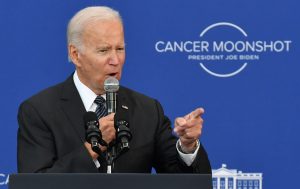
Letters to the editor
MBTA Communities
The next time Gov. Healey laments about people relocating from the Commonwealth, perhaps a staff member might mention that the exodus continues, and the cause isn’t only about taxes, and high housing costs. It’s also about policy. Usually, nothing ever forced is ever forceful. And that is where the MBTA Community Act fails. It’s another solution that favors, or disfavors, a class, or classes, of people. Something the Commonwealth is famous for.
People don’t like being forced or threatened, but that is how the Commonwealth’s MBTA Communities Act is being implemented. Threatening to not fund programs and grants for towns that do not comply is neither proactive nor productive.
The MBTA Communities Act forces cities and towns to zone for more multi-family units, in addition to the Affordable Housing requirements that have been in existence for decades. Unlike that bill, which is mandated for every city or town, the MBTA Communities Act targets cities and towns, and neighboring cities and towns, that have MBTA stations. That is unless you are conveniently exempt, as is greater Boston.
In nirvana-land people might just get by with a train system, provided it worked. But here in the Commonwealth, it hasn’t for years. The T and Commuter Rail suffer from more than just mechanical disrepair. The Commuter Rail schedule is not viable if one wants to be carless. That glitch alone pushes people to buy a car, even if it is to just purchase groceries. Once that car exists, especially if one has kids in school and they participate in extracurricular activities, it will undoubtedly find itself, often, on an already crowded and reportedly unsafe highway.
When considering the number of cities or towns that host MBTA stops, compared to the total number of communities that comprise the expansive Commonwealth, it begs the question if an adequate number of units will be built that are required to make a dent in such an enormous problem, as it is categorized? Wouldn’t a better plan be to channel those dollars earmarked for free community college tuition to converting widespread unused city office space and abandoned manufacturing mills to housing? Both solutions help rebuild communities by repurposing unused space.
Another pitfall of the Act, sadly unsaid, is that it also puts an undue burden on those mandated communities with unplanned and unknown municipal costs to schools, hospitals, police, and fire services which all correspond with a larger population.
I pray the Healey Administration knows of the Boomerang Theory. It states, “What goes around comes around.” If Trump wins the election, federal funding to sanctuary cities might be reduced or eliminated. Then watch: more policies, higher taxes, and even a greater exodus.
Michael Cicalese
Duxbury


